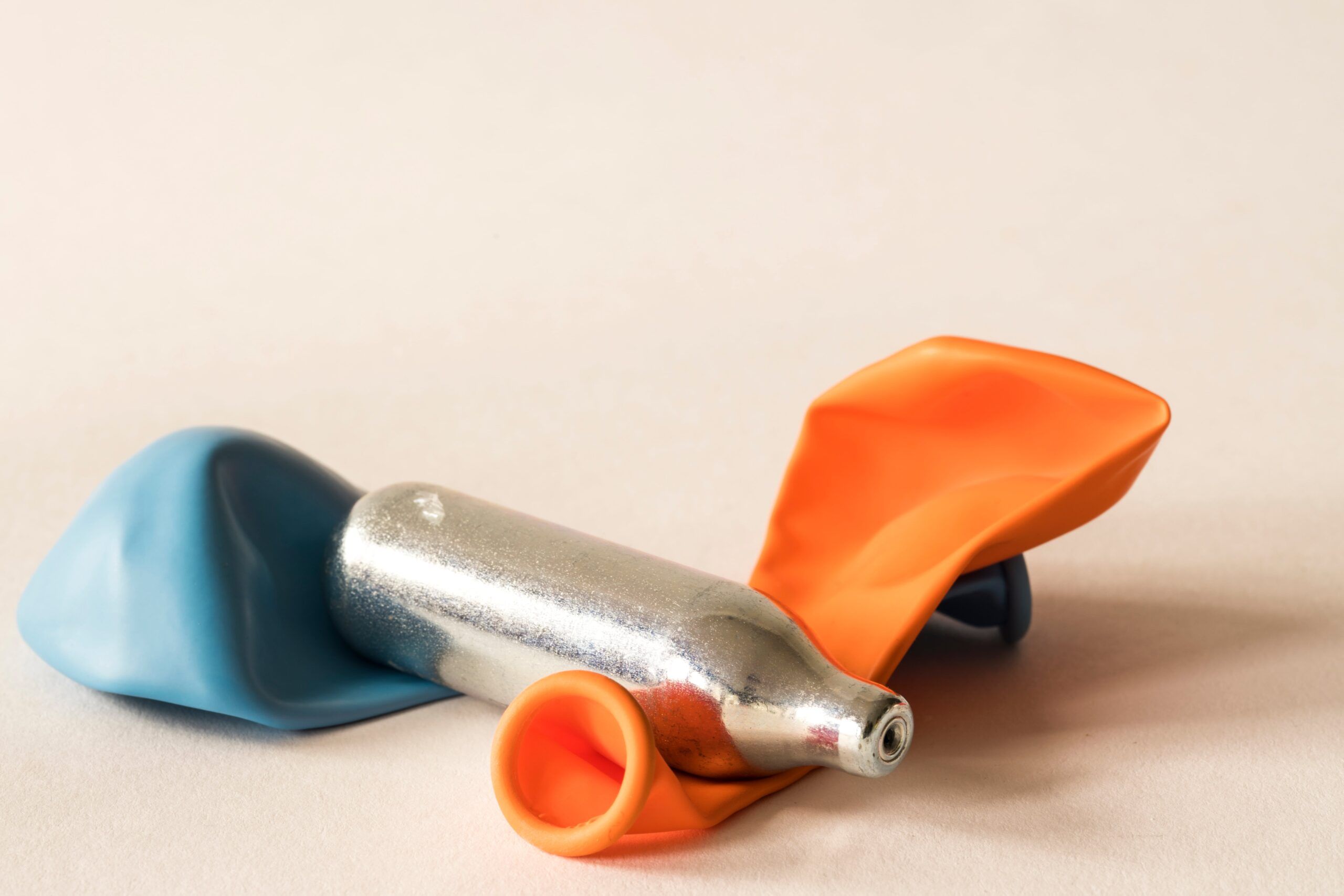
Nitrous Oxide (Laughing Gas) Abuse
Nitrous oxide is a sedative used by health professionals and the food service industry. When used in medical settings, it blocks pain receptors in the central nervous system and causes patients to relax. In the food service industry, it is used to rapidly pickle vegetables, for craft cocktails, in whipped cream, and to infuse oils with flavors. However, due to its effects, some people misuse this colorless, non-flammable gas. Regular abuse of nitrous oxide can lead to dependence and addiction.
What Is Nitrous Oxide?
Nitrous oxide is a fast-acting gas with a sweet smell and taste. It is called laughing gas because of some of its effects. While it is a sedative and central nervous system depressant, it is also considered a dissociative drug. Dissociative drugs can make people feel detached or separated from their bodies or experience hallucinations.
It is one of the most widely used sedatives in the healthcare industry due to its fast-acting effects, which last only a short time. Dentists and doctors use it to help sedate people for minor procedures that require only a short time to complete.
Why Do People Abuse Nitrous Oxide?
People abuse nitrous oxide due to the effects they experience when inhaling the gas. These effects include:
- Euphoria
- Calmness
- Relaxation
- Happy
- Giggly
- Light-headed
- Heaviness
- Dizziness
- Tingling sensations in the arms and legs
Is Nitrous Oxide Addictive?
Nitrous oxide is a highly addictive substance, and regular use will lead to addiction. The brain remembers the pleasurable effects experienced while under the effects of laughing gas. So, it develops a craving for the substance and encourages future use. If someone continues to give in to their cravings and continues to use nitrous oxide, they will eventually become dependent on it.
As they do, they will also experience tolerance to the substance, where they will have to use higher amounts of the gas to achieve the desired effects. Eventually, they may become addicted to the gas and struggle to function without its effects.
Side Effects of Inhaling Nitrous Oxide
Usually, people inhale nitrous oxide from a balloon that is filled with the gas from a capsule or large cylinders. Inhaling the gas directly from a capsule or large cylinder can cause serious damage to the lungs. Other potential short-term side effects people can experience include:
- Headaches
- Agitation
- Nausea
- Vomiting
- Low blood pressure
- Fainting
- Nere damage
- Heart attack
- Hypoxia
Long-term nitrous oxide abuse can cause these side effects:
- Anxiety
- Depression
- Memory loss/blackouts
- Numbness
- Weakened immune system
- Muscle spasms
- Psychosis
- Hallucinations
- Tinnitus
How Long Does Laughing Gas Last?
The effects of laughing gas usually begin to be felt within two to three minutes of inhaling it. When used in a medical setting, the effects last for however long the person is administered the gas. Once a person stops inhaling the gas, the body clears nitrous oxide within five to ten minutes, restoring a normal feeling. All effects typically wear off in about half an hour.
Recreational use of nitrous oxide affects the duration of its effects based on the dosage. A small dose may last between five and ten minutes. However, inhaling multiple doses or a large dosage could result in effects lasting between 30 and 45 minutes.
What Are the Risks of Using Nitrous Oxide Recreationally?
Using nitrous oxide recreationally and regularly does have its risks. Frequent or excessive use of the gas can cause low oxygen levels, which can cause dizziness initially. As oxygen levels drop lower, it can cause unconsciousness and, in extreme cases, respiratory failure and death.
Another risk associated with the regular use of laughing gas is nerve damage. The substance depletes vitamin B12, which is responsible for red blood cell production, nervous system functions, and immune system support. As the vitamin depletes, it causes tingling sensations in the arms and legs. Some might view this as pleasurable, but it can lead to long-term neurological damage.
There are also psychological risks of abusing nitrous oxide. The gas causes changes in the brain and central nervous system, causing the body to become reliant on it. When someone attempts to cut down or stop using the gas, the body goes into withdrawal as it attempts to function without the gas.
Additionally, those addicted to nitrous oxide can engage in risky behaviors and impaired decision-making. Some people will inhale any substance from non-medical containers, believing it is nitrous oxide. Doing so not only increases the risk of lung damage but also exposure to other substances, chemicals, and contaminants, which could cause serious health problems, accidental overdose, or even death. For example, Someone could add a small amount of fentanyl to a balloon before filling it with nitrous oxide.
Contact Sanctuary Treatment Center for Help With Addiction
Are you struggling with nitrous oxide addiction and want help to quit safely? Reaching out for help is the start of your recovery journey. At Sanctuary Treatment Center, our caring and compassionate team is here to support and guide you as you overcome your substance addiction. We provide comprehensive, evidence-based and holistic therapeutic modalities tailored to your specific needs. Contact us today to start your path to a brighter, nitrous oxide-free future.
Published: 3/27/2025


